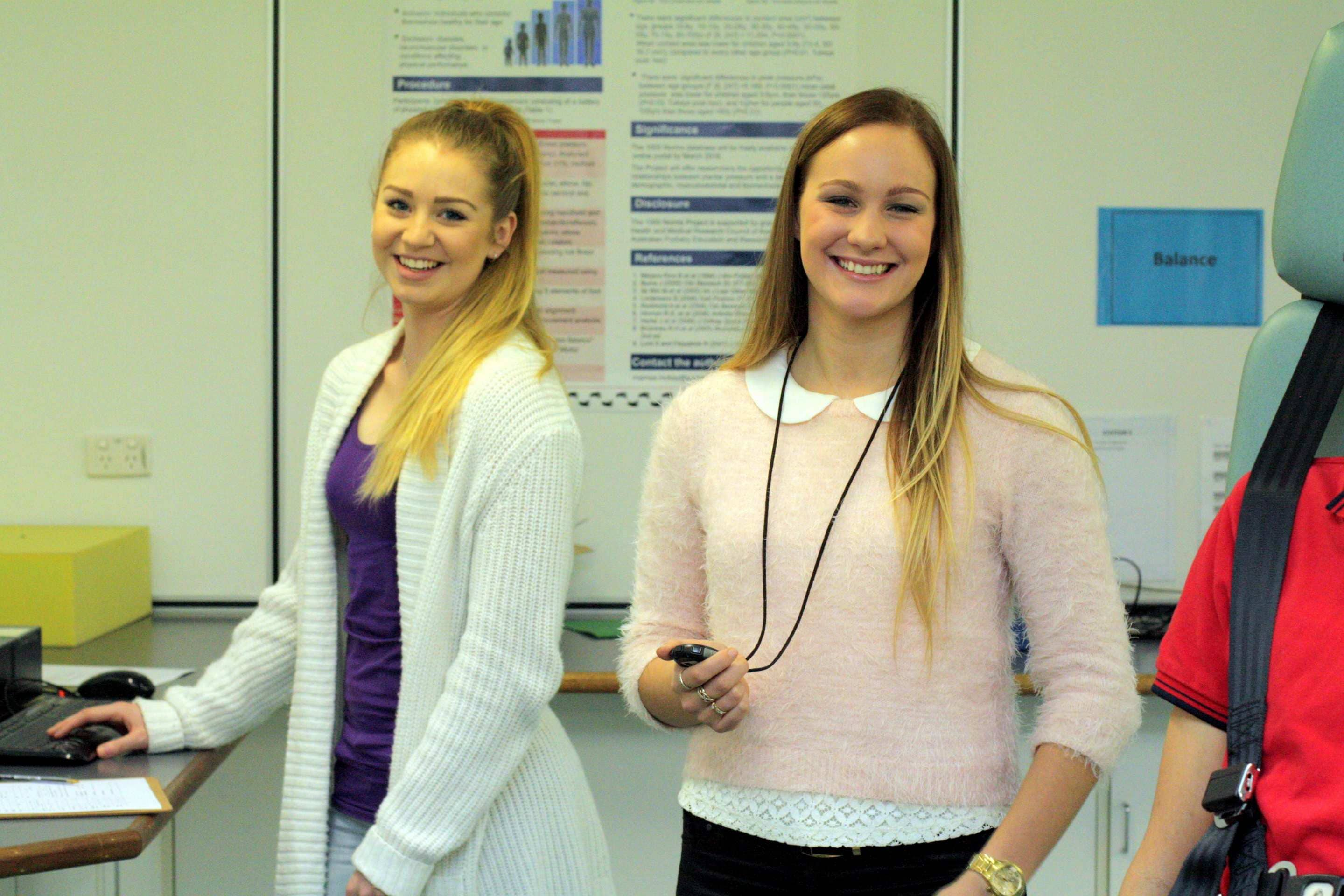
Early exposure kick starts research careers
A new scholarship program with a four-week research cadetship gives Aboriginal and Torres Strait Islander health students a taste of research and cultivates new career aspirations.

Scholarship recipients Amy Hawker and Sarah Large in the Sydney Performance Lab
Program Coordinators Dr John Gilroy and Mrs Simone Cherie-Holt said the program is vital as Australia needs more Aboriginal and Torres Strait Islander people to champion Indigenous community-driven research.
“Health is a priority area in closing the gap and while we need Aboriginal and Torres Strait Islander clinicians on the ground, we also need Aboriginal and Torres Strait Islander health professionals with an understanding of research and how it can enhance their practice,” said Dr Gilroy, Indigenous health sociologist in the Faculty of Health Sciences.
A report by Dr Gilroy and colleagues at the University of Sydney shows Indigenous Australians are underrepresented in higher degree research programs, accounting for 0.66 percent of PhD enrolments Australia wide in 2010.
“We spend a lot of money and effort on schooling and transition to work, but after that it stops when we should be encouraging life-long learning,” said Dr Gilroy.
“For university students that might mean looking at doing research through an honours program or even a PhD in the future, but it’s important to flag these options early on.”
The competitive scholarships are awarded to four Aboriginal and Torres Strait Islander students in the Faculty of Health Sciences each year, allowing them to take up a four-week placement with a prominent research program of their choice during study break.
This year’s scholarship recipients, Sarah Large and Amy Hawker, are working on the 1000 Norms Project, a landmark study cataloguing human variation among healthy people aged between three and 101 years.
The Indigenous physiotherapy students said they hadn’t previously considered research as an option.
“I think research is really important in understanding the health gap between Indigenous and non-Indigenous Australians, yet I’d never really considered it as an opportunity for me before I heard about the scholarship,” said Amy, who is commencing honours this year.
Sarah Large said her involvement in the scholarship program has changed her understanding of research and the benefits it could provide her career.
“Being involved in the day-to-day running of a research project and working with such a range of people has given me a real insight into what an honours research year would be like, and I’m definitely considering it,” said Sarah.
The scholarship program is an initiative of the University of Sydney’s Wingara Mura - Bunga Barrabugu strategy, aimed at improving the engagement of Aboriginal and Torres Strait Islander people in all areas of University life.
Professor Kathryn Refshauge, Dean of the Faculty of Health Sciences said the scholarships provide another avenue to ensure Aboriginal and Torres Strait Islander students aspire to a career beyond graduation.
“The unique program gives students the opportunity to be mentored by the senior researchers and PhD students, and they get to see first-hand the importance of research to improving health in the community.”
In 2014 the University of Sydney increased the number of Aboriginal and Torres Strait Islander students to 358, including 19 new PhD students.